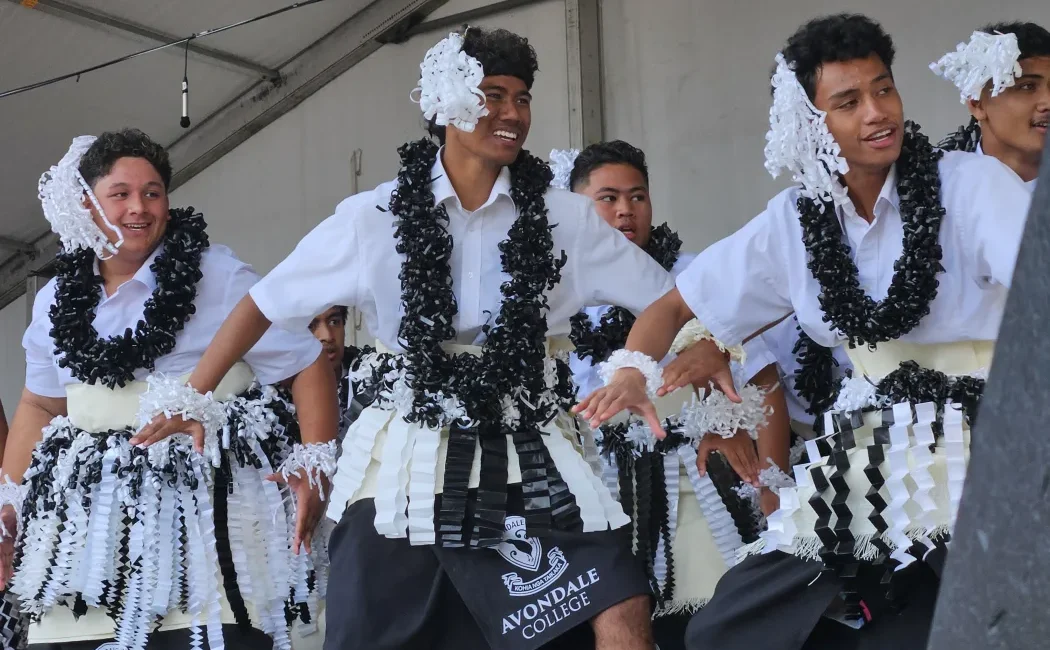
Tongan performers at the Auckland Polyfest 2024. Photo: RNZ Pacific / Tiana Haxton
South Auckland was a hub of indigenous pride as the ASB Polyfest 2024 revealed a vibrant celebration of cultural diversity, youth empowerment, and the enduring legacy of Pasifika heritage.
From the rhythmic beats of Cook Islands drums to the grace and elegance of Siva Samoa, the festival brought together over 200 teams from 69 schools across Aotearoa.
Polyfest, now in its 49th year, continues to captivate audiences as one of the largest Pacific festivals in Aotearoa.
What began in 1976 as a modest gathering to encourage pride in cultural identities has evolved into a monumental event, attracting up to 100,000 visitors annually.
Held at the Manukau sports bowl, secondary school students from across New Zealand share traditional dance forms and compete on six stages over four days.
Five stages are dedicated to the Cook Islands, New Zealand Maori, Niue, Samoa and Tonga.
A sixth ‘diversity’ stage encourages representation and involvement of students from all other ethnicities, ranging from Fijian, Tuvaluan and Kiribati, through to Chinese, Korean and Indian.
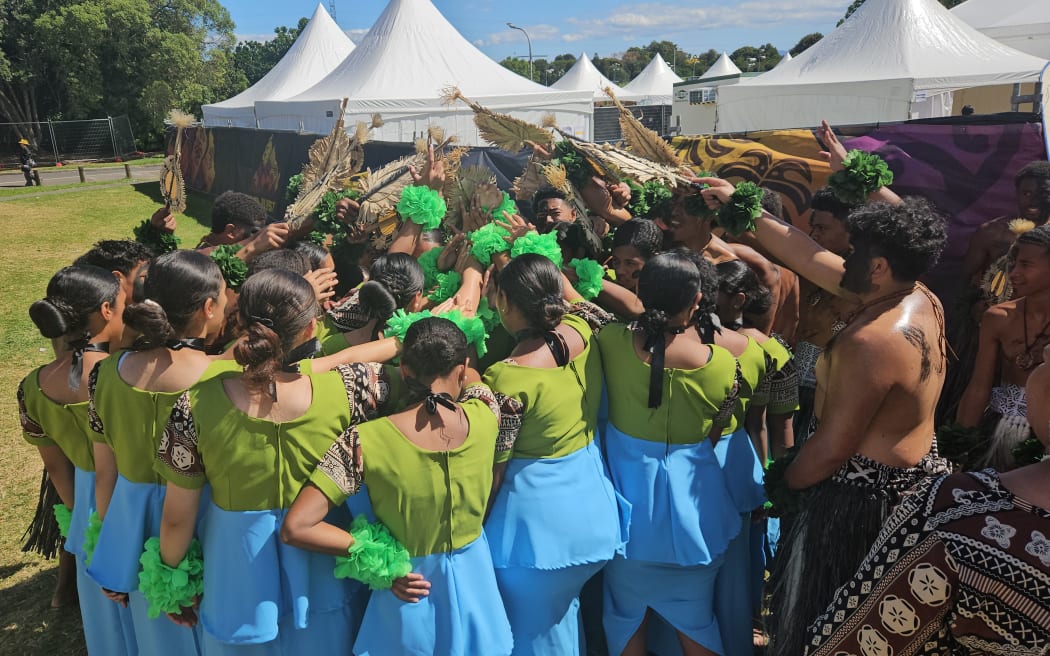
Performers from the Diversity Stage at the Auckland Polyfest 2024. Photo: RNZ Pacific / Tiana Haxton
For festival director Terri Leo-Mauu, Polyfest represents more than just a showcase of talent; it’s a platform for youth to connect with their cultural heritage and celebrate their identities.
“It’s important for them to carry on the tradition, a rite of passage almost,” Leo-Mauu said.
“It’s also important to them because they get to belong to something, they get to meet friends along the way and get to share this journey with other people.”
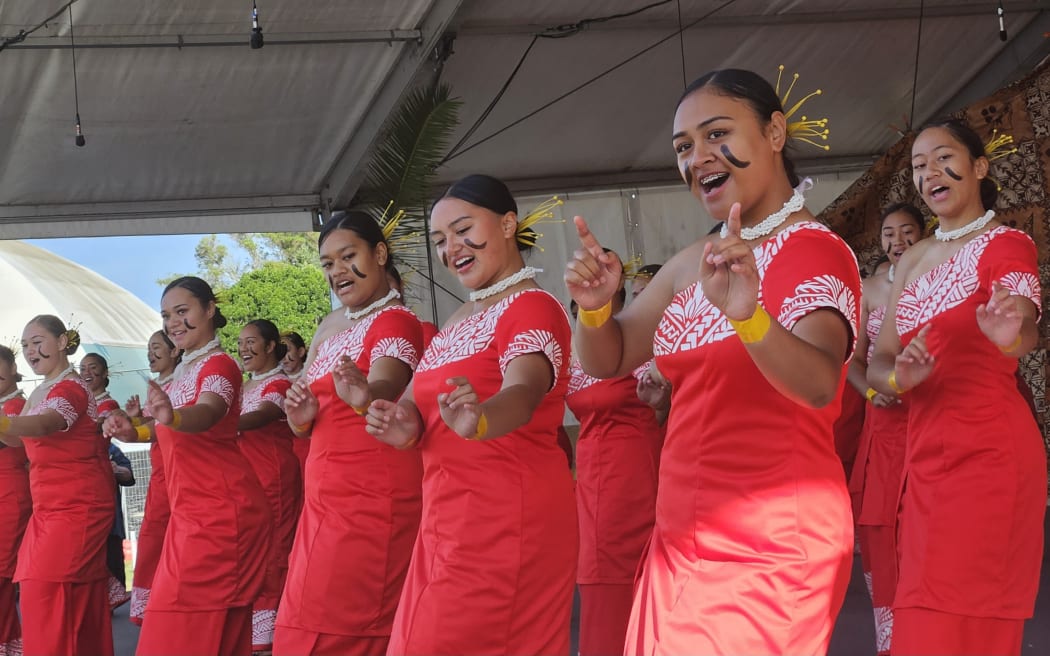
Samoa Stage performers at the Auckland Polyfest 2024. Photo: RNZ Pacific / Tiana Haxton
The sentiment is echoed by participants like Allen Palemia and Abigail Ikiua, who serve as youth leaders for their respective cultural teams.
For Palemia, leading Aorere College’s Samoan team, Polyfest is a chance to express cultural pride and forge lifelong connections.
“Polyfest is great… it is one of the ways we can express our culture and further connect and appreciate it.”
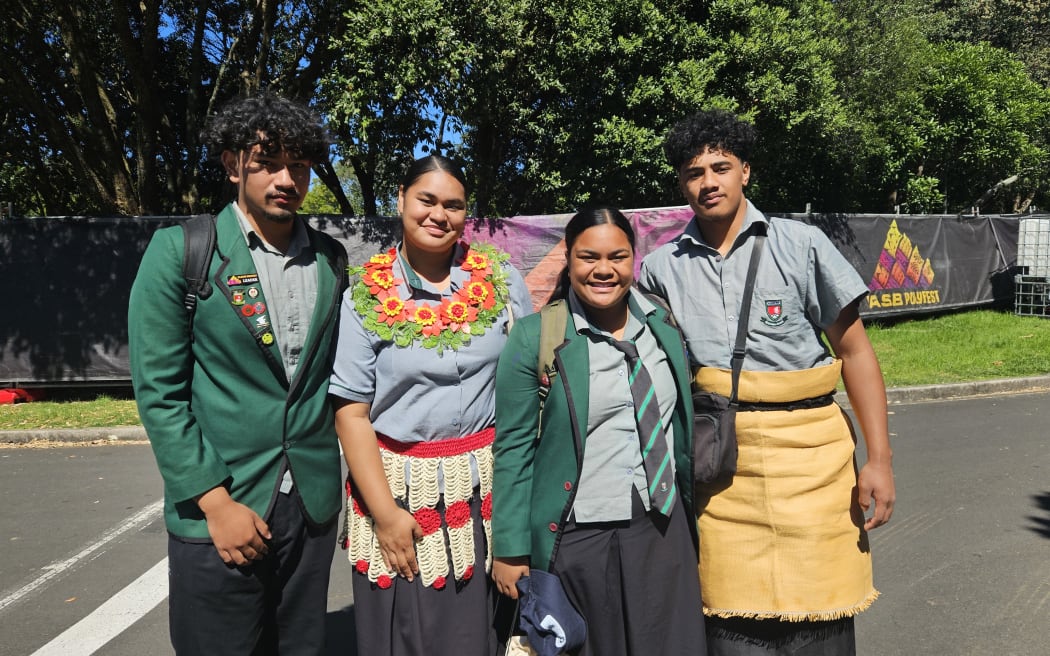
Aorere College team leaders at the Auckland Polyfest 2024. Photo: RNZ Pacific / Tiana Haxton
Similarly, Ikiua, a team lead for the Niue team, sees Polyfest as a platform for cultural revival and self-discovery.
“I think Polyfest is a good place for people to reconnect to their culture more, and just a way for people to find out who they are and embrace it more.”
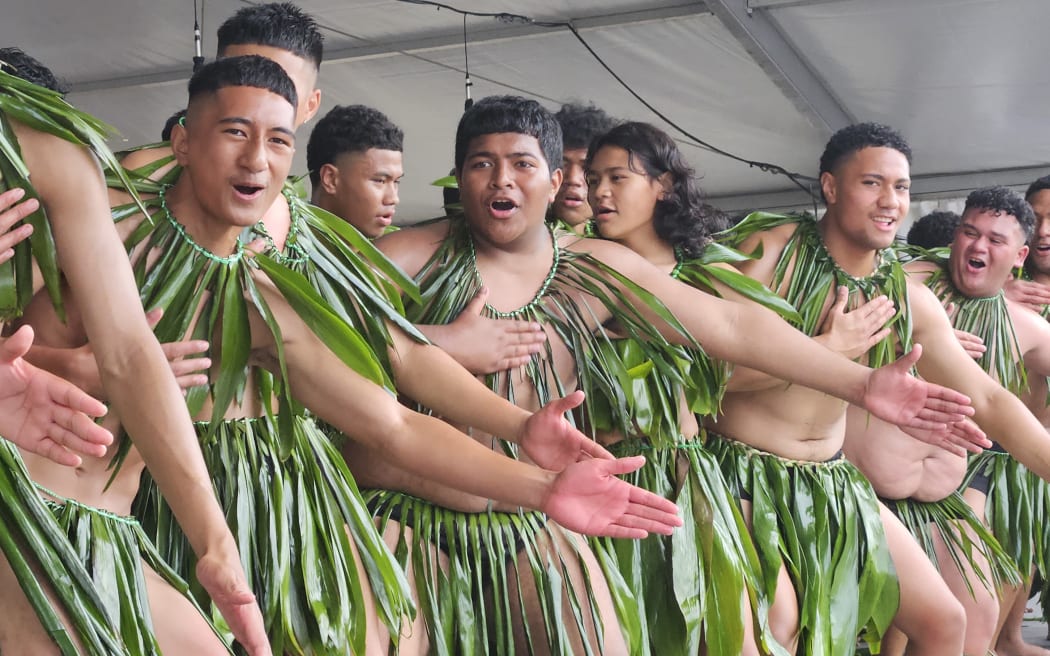
Niue Stage performers at the Auckland Polyfest 2024. Photo: RNZ Pacific / Tiana Haxton
Connection to their indigenous heritage plays a huge role in the identities of the young ones themselves.
Fati Timaio from Massey High School is representing Tuvalu, the third smallest country in the world.
He shared how proud he is to be recognized as Tuvaluan when he performs.
“It’s important to me cus like when people ask me oh what’s your nationality? and you say Tuvaluan they will only know cus you told them aye but like when you come to Polyfest and perform, they know, they will look at you and say oohh hes Tuvaluan… you know what I mean.”
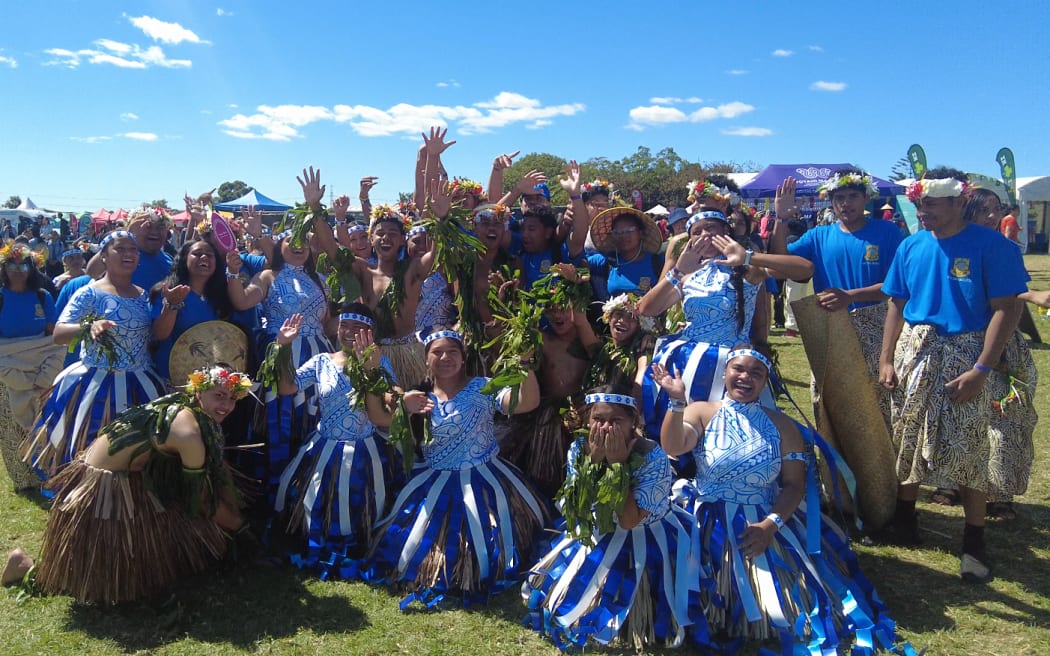
Massey High School – Tuvalu group Photo: Tiana Haxton
Festival goers say this celebration of cultural identities from te moana nui o kiva and beyond is reinvigorating the young ones of Aotearoa.
The caliber of performances was astronomical, an indication of what to expect at next year’s event, which will also be the 50th anniversary of Polyfest.
The 50-year’s celebrations are expected to be even bigger and better following the announcement of a $60,000 funding boost by the Minister for Pacific Peoples, Dr. Shane Reti.
Reti said the government’s sponsorship of the festival recognizes the value and role languages play in building confidence for Pacific youth.
An additional $60,0000 funding boost will also be given to the festival in 2030 to mark its 55th year.
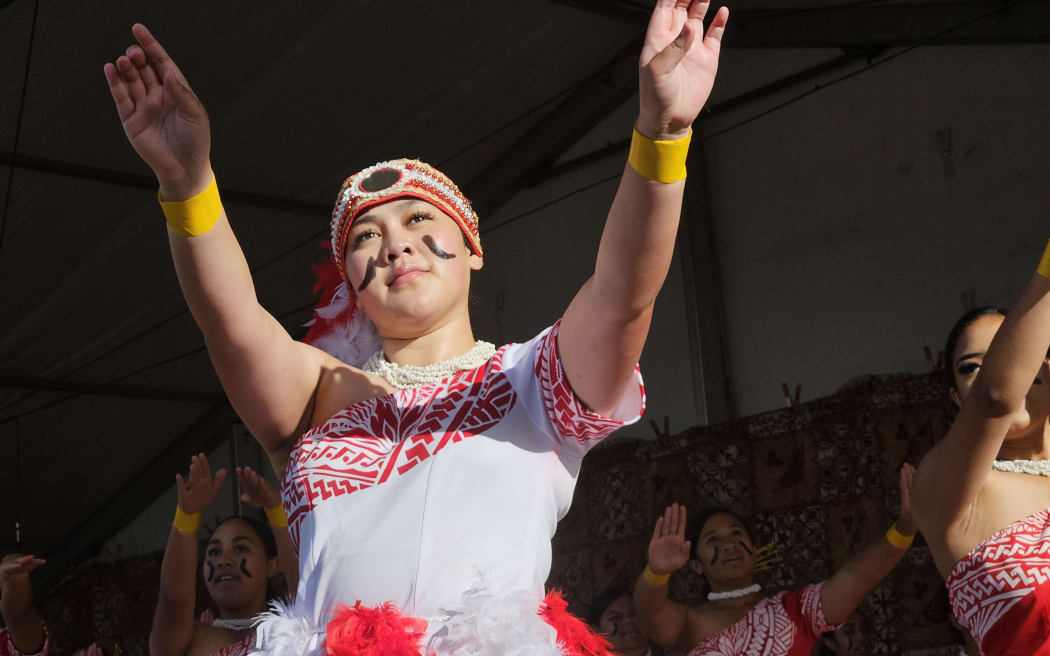
Samoa Stage performers at the Auckland Polyfest 2024. Photo: RNZ Pacific / Tiana Haxton
With the 50th anniversary of Polyfest on the horizon, the future of the festival looks brighter than ever, promising even greater opportunities for cultural exchange, community engagement, and youth empowerment.
Festival organizers are expecting participant figures to surpass pre-covid numbers at next year’s event.
The pre-pandemic record saw 280 groups from 75 schools involved.
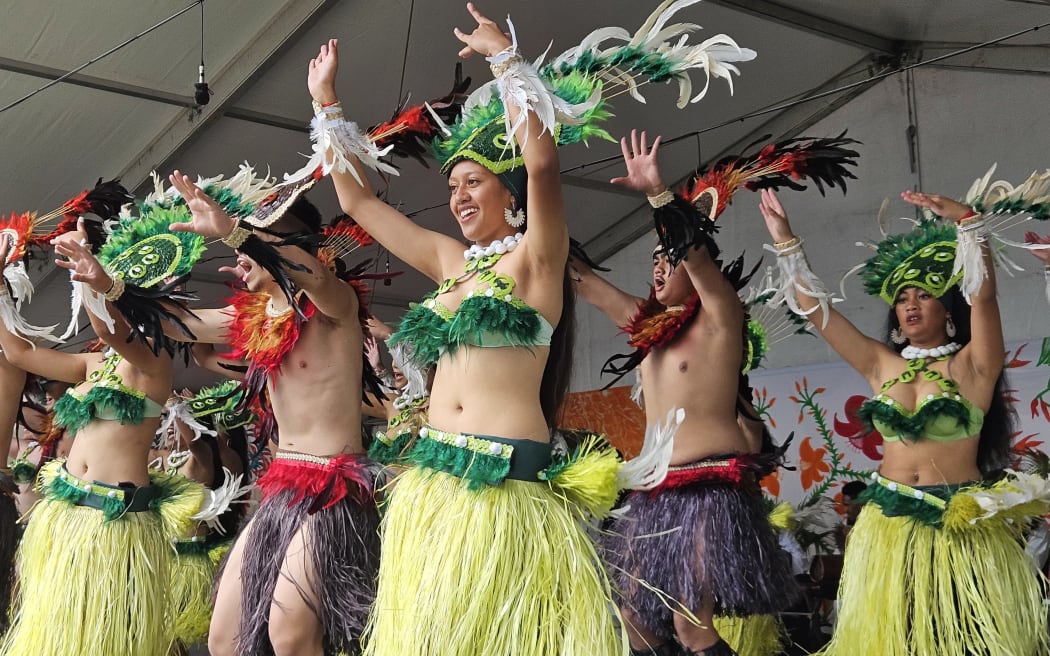
Cook Islands performers at the Auckland Polyfest 2024. Photo: RNZ Pacific / Tiana Haxton
The competition results are now available here.
Source: RNZ
- 27 March 2024





